Welcome to Year 5!
Blenheim Class
Teacher: Miss Springate
Teaching Assistant: Mrs. Silvester
Windsor Class
Teacher: Miss Wilkins
Teaching Assistant: Mrs. Jimenez
Welcome to Upper Key Stage 2! We are looking forward to a year of excellent learning, great fun and outstanding achievement for all. In Year 5, you will embed all the knowledge you have learnt in Lower Key Stage 2 and start the preparations for your move to secondary school. You will gain a greater independence and confidence from being given more responsibility for your learning because Year 5 is very much about encouraging independence in preparation for bigger things to come.
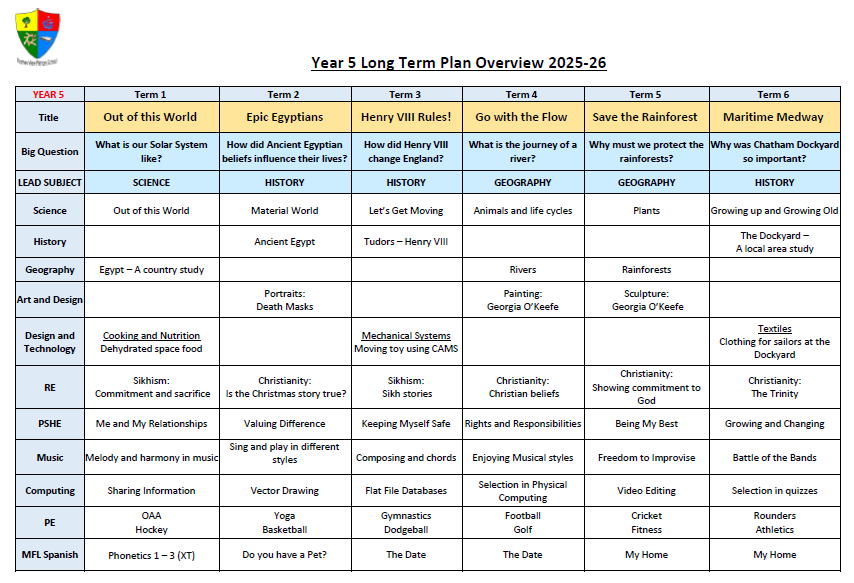
Term 1: Out of this World
What is our Solar System like?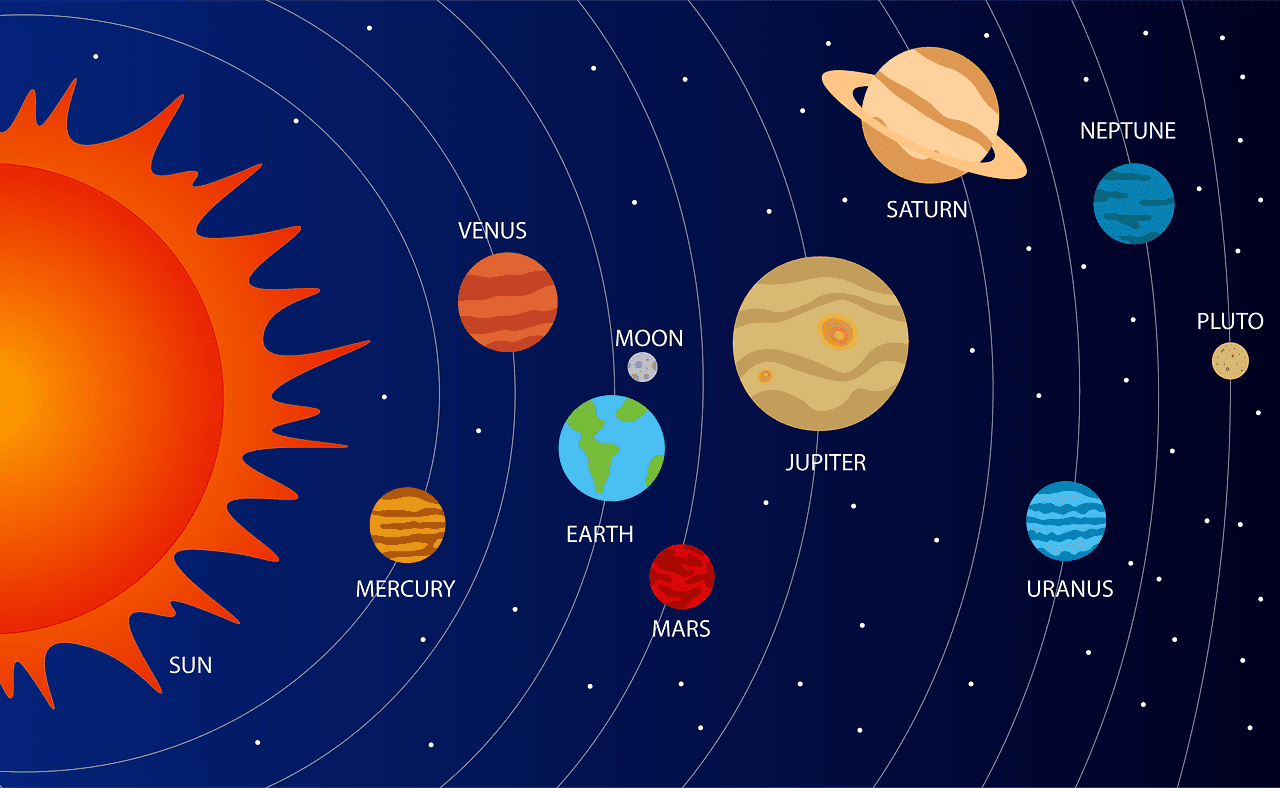
Get ready to blast off into space as we explore the incredible Solar System!
Our focus topic in term 1 is Out of this World. Starting with a Hook Day of astronaut training, we will be launching ourselves into an exciting journey through space as we explore the Solar System! We'll be discovering how the Sun, planets, moons and other space objects all form part of a much bigger picture. As we explore, we’ll also meet some of the brilliant scientists who helped us understand space, learning how their discoveries changed the way we see our world.
From understanding how gravity keeps everything in orbit to discovering what makes day and night, this topic will help us find out how space affects life on Earth. Get ready to ask big questions, investigate amazing facts, and become space explorers right from our classroom!
Term 2: Ancient Egypt
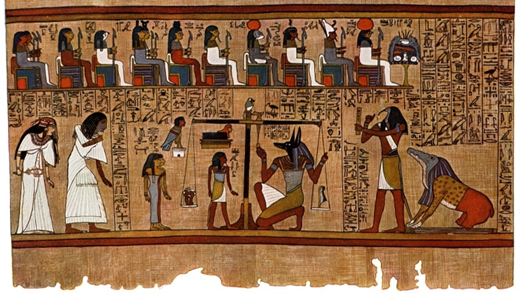
How did Ancient Egyptian beliefs influence their lives?
Come meet the clever, creative ancient Egyptians. We think you'll like them ...
The ancient Egyptian civilisation began 5,000 years ago when people started building villages next to the River Nile in North East Africa. Here the soil was rich and food was plentiful. The surrounding desert helped to keep them safe from intruders, while the Nile kept their world green.
We will learn about the boy king Tutankhamun, and the importance of religion: they worshipped over 2,000 gods and goddesses!
We will also explore their beliefs about a never-ending afterlife and how they preserved the bodies of important people through mummification, building special tombs inside giant pyramids, and filling them with all their favourite things.
Term 3 : Henry VIII - Tudor King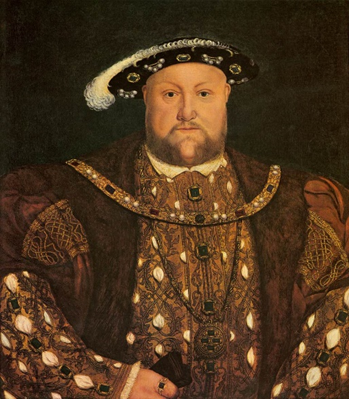
How did Henry VIII change England?
Sometimes history is shaped by big events like battles or earthquakes. Sometimes, just one person changes things, like Henry VIII.
In Term 3, we will learn about one of the most famous monarchs in British history … along with his equally famous six wives. Henry VIII was a member of the Tudor dynasty that ruled England from 1485 to 1603. Famous for his furious temper and tendency to execute anyone and everyone that angered him, including his own wives, it’s clear it was important to him that he made an impression.
Divorced, beheaded, died, divorced, beheaded, survived! Henry VIII changed things for his six wives, but by starting the Church of England, he changed history!
Term 4 : Go with the Flow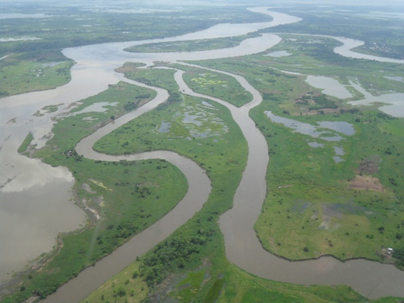
What is the journey of a river?
Our geography topic in Term 4 is all about rivers. Children will navigate towards an understanding of rivers, their uses, features and effect on the environment. They will get the chance to study the water cycle, find out how rivers are formed, explore the journey of a river from source to mouth, and investigate why rivers are important and what they are used for.
Part of our study will involve a trip to Sevenoaks Wildlife Reserve to get into and explore the River Darent. Children will practise field study skills at the river, entering the river to gauge its flow, measuring the depth and using their observations to explain how river features are formed.
Term 5 : Save the Rainforests
Why do rainforests matter?
Spanning nine South American countries and 7 million km2, the Amazon is the world’s largest forest and is home to the planet’s largest living collection of plants and animals. One-fifth of all freshwater on the planet originates in the Amazon Basin.
Children will learn all about the tropical rainforests of the world, discover why the Amazing Amazon is so important to our planet, the impact (both positive and negative) of deforestation on the local area and across the world and how they can help save the rainforests!
Term 6 : Maritime Medway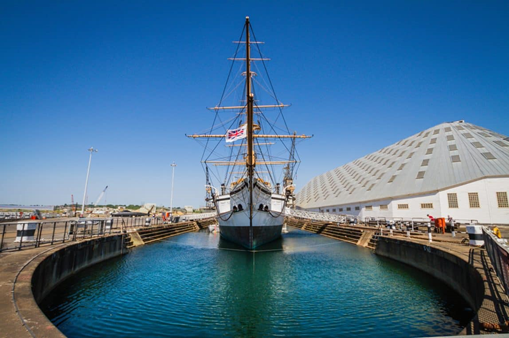
Why was Chatham Dockyard so important?
Our history topic in term 6 is Maritime Medway.
Shipbuilding has long been a key industry along the banks of the River Medway. It grew in importance when the Royal Dockyard was founded at Chatham in 1618. For more than four centuries, The Historic Dockyard Chatham was one of Britain’s most important centres of warship building and repair, allowing the Royal Navy to dominate the seas of Europe and beyond. The dockyard was operational for 400 years over which time it employed many local people and had a major impact on how Medway developed, making it the ideal location for our local history study in Term 6.
We will visit the Dockyard to find out about its history and explore its ships and galleries full of fascinating artefacts and stories as well as making our own rope.
Year 5 Educational Visits
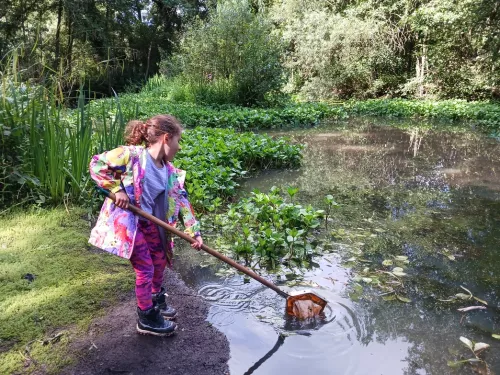
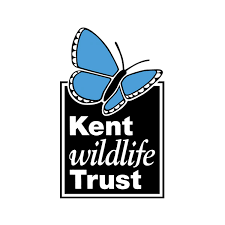
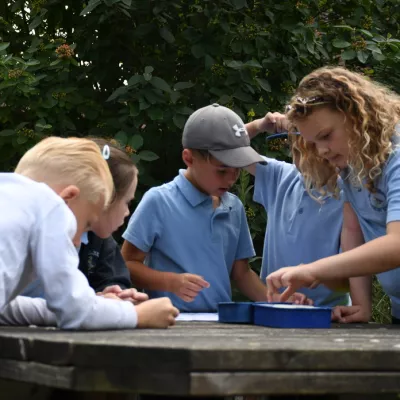
In Term 4, we will become River Explorers at Sevenoaks Wildlife Reserve (Kent Wildlife Trust), combining this with a workshop based on our Science topic of animal life cycles :
Using a model river flume, we will learn about the main features of a river and how the River Darent was formed.Then, it’s time to don wellington boots and step into the river to investigate the physical aspects of the stream, including flow rate and river profile. We will also conduct a biological survey of the river, exploring organisms adapted to thrive in moving water. We will also take part in activities that will help us describe differences in the life cycles and reproduction in some plants and animals.

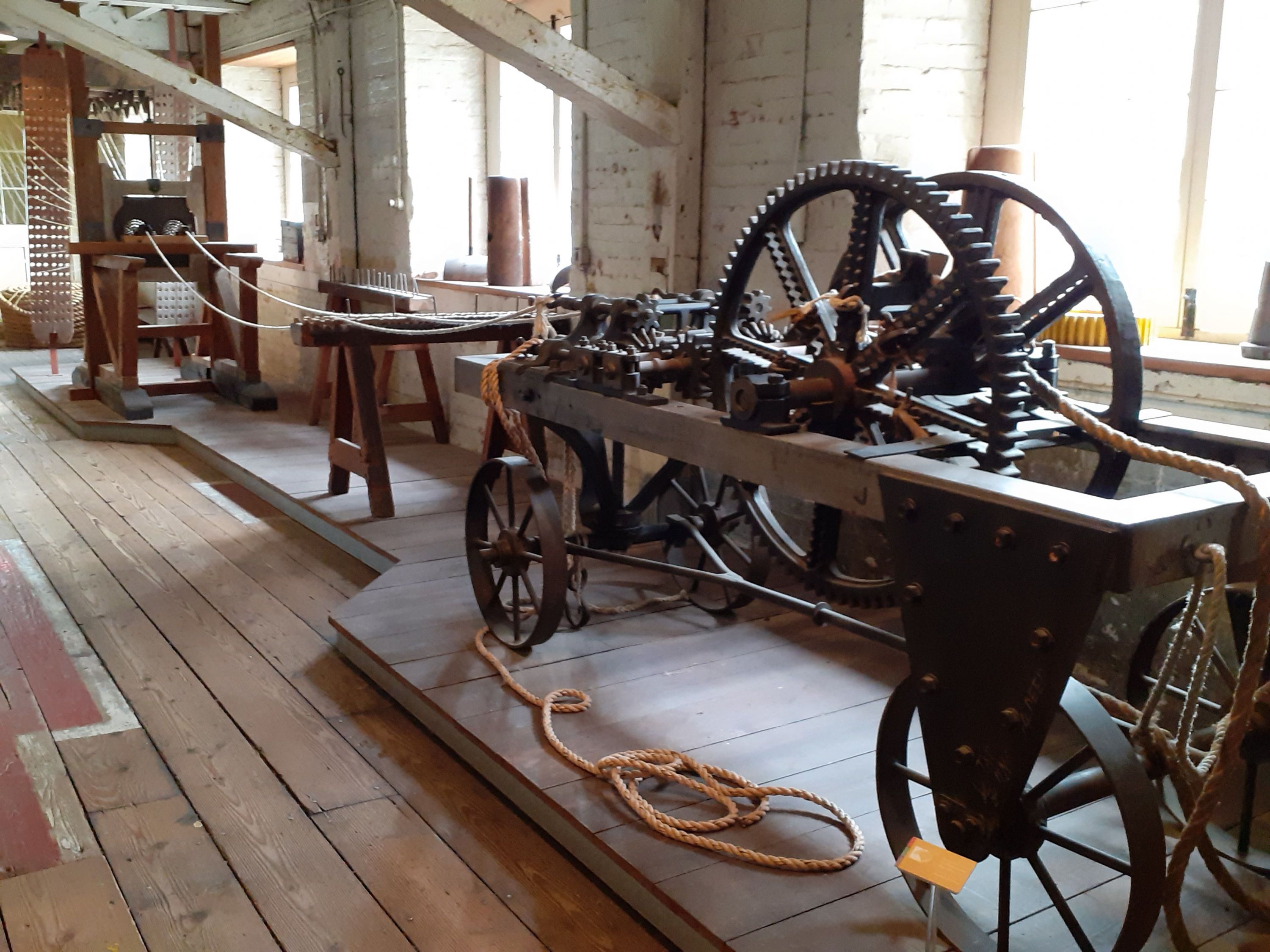
In Term 6, for our Hook Day, we will visit The Chatham Historical Dockyard, learning about how the dockyard developed to help us understand the impact it had on our local area. We will climb aboard HMS Gannet to discover how harsh life was for sailors in Georgian times as well as becoming ropemakers in the world-famous ropery, building our muscles as we twist and turn the yarn to create our own piece of rope. We also have the opportunity to explore the latest Summer exhibition and the national collection of RNLI lifeboats.
Please scroll down to find out more about our learning.
Writing
In Year 5, you will learn to write imaginatively and cohesively and to choose the right structure and tone for any given piece of writing. This includes:
- identifying the audience and purpose of your writing
- modifying your use of grammar and vocabulary depending on what you are writing
- using a consistent tense
- checking through your own and your peers’ writing and making constructive improvements.
You will also learn to use more complex word forms and clauses, to use uncommon punctuation, and to build cohesion by linking ideas across a text. This includes:
- converting nouns or adjectives into verbs using suffixes like –ate, –ise, –ify
- using brackets, dashes, or commas to indicate parentheses
- linking ideas across paragraphs using adverbials of time, place, and number.
Useful Websites
Reading
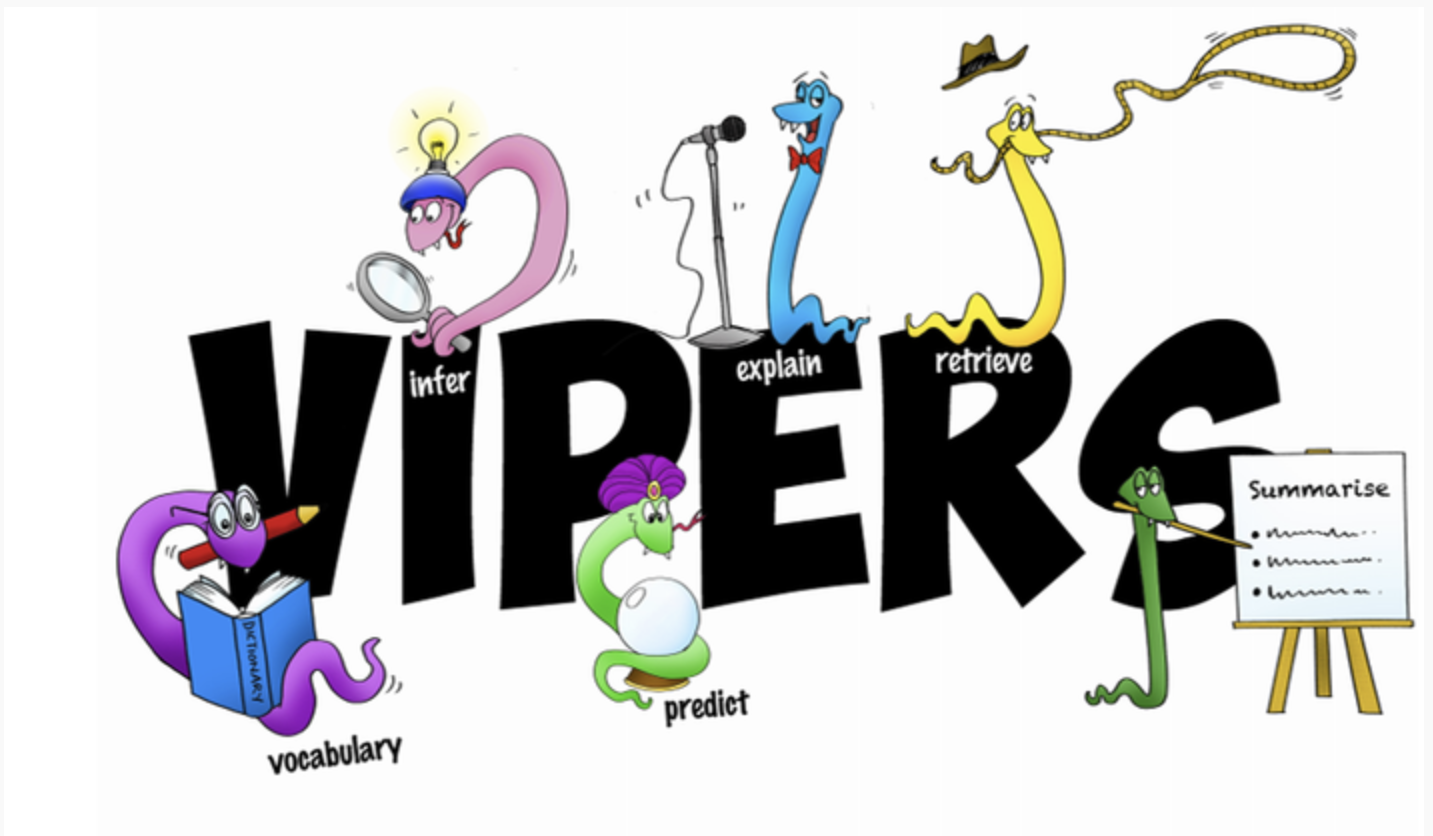
We would encourage all of you to read widely and frequently, outside as well as in school, for pleasure and information. This does not have to be your school reading book, but anything you enjoy (eg. newspapers, TV guides, leaflets, magazines).
It would be helpful if adults could write a comment in your Reading Contact books too.
Our daily reading lessons focus on the key areas which you need to know and understand in order to improve your reading comprehension skills, vocabulary and general knowledge. We call these comprehension skills VIPERS and we use them every day to help you become confident close readers of texts, deepening your understanding and enjoyment of a range of challenging texts. We will be reading some fantastic books in class this year, all of which are linked to our topics.
About the books :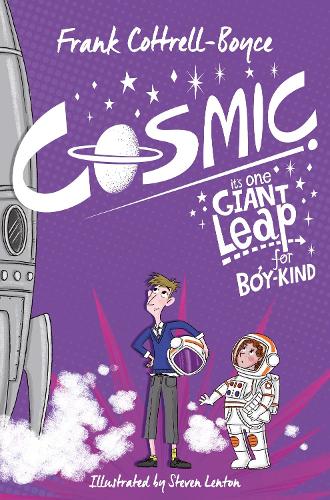
'Cosmic' by Frank Cottrell Boyce
Even though he’s only 12, Liam is constantly mistaken for an adult, but he’s still a kid who loves playing computer games and riding roller-coaster. His inquisitive nature and adult appearance often get him into trouble but his dad usually intervenes and helps him avert disaster.
When Liam wins a competition to try out the world’s greatest thrill ride, he and his friend Florida are whisked away to Infinity Park in China by the mysterious Dr Drax. The friends find themselves competing for the chance to be sent into space; soon Liam is playing a grown-up in a situation that his dad can’t save him from.
Fantasy is interspersed with reality in this funny and touching story which ultimately celebrates parents and the love they give.
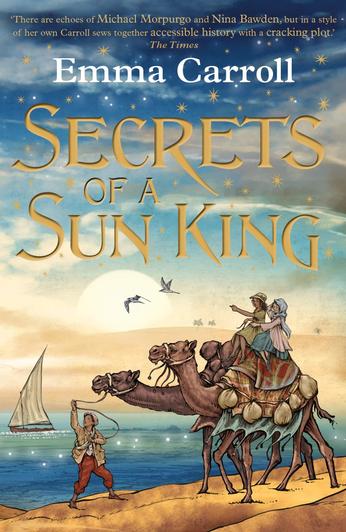
'Secrets of a Sun King' by Emma Carroll
The book is set in London, 1922. When Lilian Kaye finds a parcel on her grandad's doorstep, she is shocked to see who sent it: a famous Egyptologist, found dead that very morning, according to every newspaper in England! The mysterious package holds the key to a story... about a king whose tomb archaeologists are desperately hunting for.
Lil and her friends must embark on an incredible journey – to return the package to its resting place, to protect those they love, and to break the deadly pharaoh's curse...
'Journey to the River Sea' by Eva Ibbotson
This satisfyingly old-fashioned story is set in the early 1900s.
Orphan Ma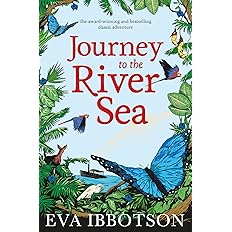 ia is thrilled to learn she is to live with relatives in South America. She cannot wait to experience the sights, sounds and smells of the Amazon and is particularly looking forward to meeting her twin cousins.
ia is thrilled to learn she is to live with relatives in South America. She cannot wait to experience the sights, sounds and smells of the Amazon and is particularly looking forward to meeting her twin cousins.
When Maia arrives, however, the family is far from welcoming and she is saddened to see that they have blocked out all evidence of the rainforest from their stuffy home. Maia turns to her strict yet kindly governess, Miss Minton, for company, and strikes up some unusual and rewarding friendships.
This enchanting story has all the trademarks of Eva Ibbotson's writing. Maia is a wonderful heroine and Ibbotson weaves a charming, compelling and warm-hearted tale of friendship, our responsibility to those around us and the importance of the natural world. As well as being an exciting adventure story, this award-winning contemporary classic will leave readers with plenty to think about.
Useful Websites:
- Epic Digital Library
Thousands of books and other reading materials are open to you all here - you just need your class code to log in.
- School Reading List site
- Explore Learning Recommended Reading
- 50 Recommended Reads for Year 5
- Love Reading
Spelling

In Year 5, you will learn to spell words that don’t fit easy spelling rules and will use dictionaries and thesauruses. This includes:
- spelling words with ‘silent letters’
- knowing the difference between uncommon homophones and other confusing words
- using morphology and etymology in spelling
- using a thesaurus to expand their vocabulary.
As well as practising the year 3 and 4 statutory spellings and introducing the year 5 and 6 statutory spellings, we investigate the year 5 spelling curriculum using a variety of resources and strategies.
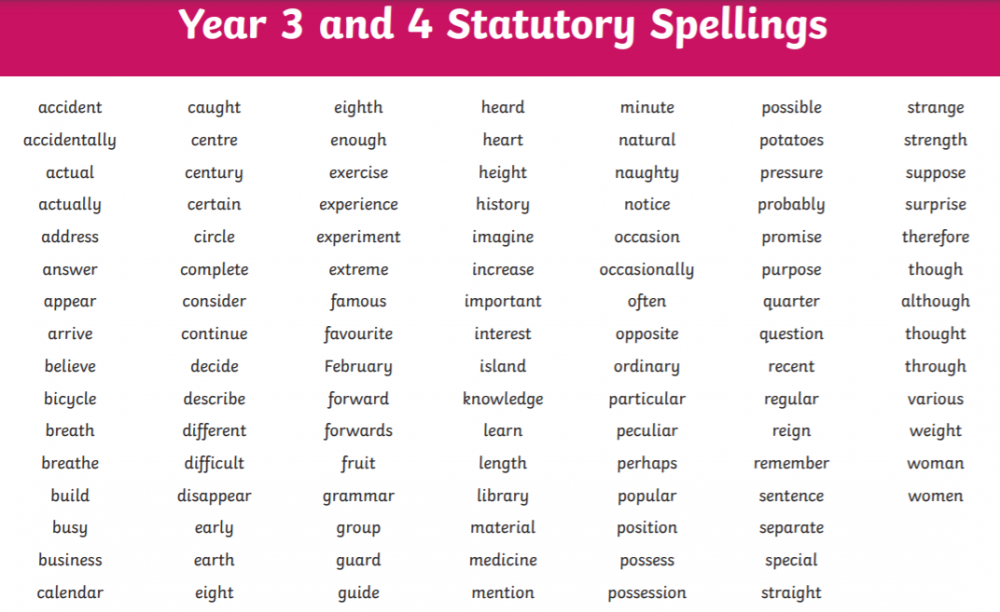
Useful Websites:
Maths

In Year 5, you will continue to practise mental and written calculation methods and use all the operations to solve problems. You will meet prime, square and cube numbers, and work with factors and multiples. You will calculate perimeters and areas, draw and measure angles, convert between units of time and learn some imperial measures. You will reflect and translate shapes on coordinate grids and interpret line graphs and timetables.
You’ll be taught long multiplication and multiply four-digit by two-digit numbers then short division for dividing four-digit by one-digit numbers. You’ll begin to multiply fractions, learn more about decimals and be introduced to percentages. You will be able to count in powers of 10 and round numbers up to 1,000,000 to the nearest 10, 100, 1000, 10,000 and 100,000.
Term 1/2:
Number and Place Value: You will be expected to read, write, order and compare numbers up to 1,000,000, recognising the place value of each digit. This includes:
- counting forwards and backwards with positive and negative numbers
- rounding numbers up to one million to the nearest 10, 100, 1000, 10 000 and 100 000
- recognising Roman numerals I, V, X, L, C, D and M to read numbers and years.
Addition and Subtraction: You will be expected to be able to solve addition and subtraction problems involving numbers with more than four digits. This includes:
- practising a range of mental calculation strategies as well as using a variety of methods to calculate including using objects, diagrams or drawings such as number lines, models such as the area/grid method and written column addition and column subtraction
- using rounding to estimate answers and checking that answers are sensible and accurate
- solving multi-step word problems for which you will need to solve multiple calculations before coming to the final answer.
Term 2/3:
Multiplication and Division: You will be expected to be able to solve multiplication and division problems involving numbers up to four digits and begin to learn long multiplication. This includes:
- multiplying four-digit numbers by two-digit numbers (long multiplication)
- dividing four-digit numbers by one-digit numbers and interpreting remainders
- understanding the terms multiple, factor, common factor, prime, square and cube numbers.
Term 3/4:
Fractions: You will be expected to be able to find fractions of numbers and quantities including thousandths and begin to learn about percentages. This includes:
- recognising and converting between mixed numbers and improper fractions
- multiplying proper fractions and mixed numbers by whole numbers
- understanding percentages as ‘the number of parts per hundred’ and knowing percentage and decimal equivalents of
,
,
,
and
.
Decimals: You will develop your understanding of decimals and be introduced to percentages. This includes:
- ordering and comparing decimals to 3 decimal places
- rounding to 2 decimals places
- learning what percentages mean
- finding equivalent fractions, decimals and percentages
Perimeter and Area: You will use your calculation strategies to calculate perimeter and area of rectilinear shapes. This includes:
- finding the perimeter of rectangles and other polygons
- calculating the area of rectangles by counting squares and using a multiplication formula
- calculating the area and perimeter of compound shapes
Term 5/6:
Properties of Shape: You will continue to develop your knowledge of geometry. This includes
- identifying 3-D shapes, including cubes and other cuboids, from 2-D representations
- knowing angles are measured in degrees: estimating and comparing acute, obtuse and reflex angles
- drawing given angles and measuring them in degrees (°)
- using the properties of rectangles to identify related facts and find missing lengths and angles
- distinguishing between regular and irregular polygons based on reasoning about equal sides and angles.
Decimals: You will continue to develop your understanding of decimals. This includes:
- adding and subtracting decimals using column methods
- decimal sequences
- multiplying and dividing decimals by 10, 100 and 1,000 and using these skills to convert measures
Useful Websites:
Science
The main focus of science in Year 5 is to help you to develop a deeper understanding of a wide range of scientific ideas. You will learn to select the most appropriate ways to answer science questions using different types of scientific enquiry, including observing changes over different periods of time, noticing patterns, grouping and classifying things and carrying out comparative and fair tests. You will also be expected to read, spell and pronounce scientific vocabulary correctly as well as finding out about significant scientists linked to our topics.
In Year 5, our science topics are as follows:
Term 1: Out of this World (Earth and space)
You will be learning about space starting with the Solar System. You will look at how ideas about space have changed over time before they explore what causes us to experience night and day on Earth. Key scientists : Galileo and Copernicus.
Term 2: Material World (Properties and changes of materials)
You will learn about materials and how they change. First you will test the properties of materials before looking at how materials dissolve, what a solution is and evaporation. Finally, you will compare reversible and irreversible changes.
Term 3: Let's Get Moving (Forces)
You will learn about forces and machines. You start with the force of gravity then study friction forces, including air and water resistance, before investigating how simple machines work. Key scientist : Isaac Newton.
Term 4: The Circle of Life (Animals and life cycles)
You will look at the life cycles and reproduction of various species of animals including mammals, amphibians, fish and birds. Key scientists/naturalists : Jane Goodall, David Attenborough and Gerald Durrell.
Term 5: The Circle of Life (Plant life cycles)
The focus of this unit is on how plants reproduce - sexually and asexually. You will investigate the differences in the life cycles of these plants as well as growing different types of plants yourselves, making careful observations of how they grow and change.
Term 6: Growing up and Growing old (Animals, including humans)
In this topic, you look at and describe the changes as humans develop to old age. You draw a timeline to indicate stages in the growth and development of humans and learn about the changes experienced in puberty. This links to our PSHE work.
Physical Education
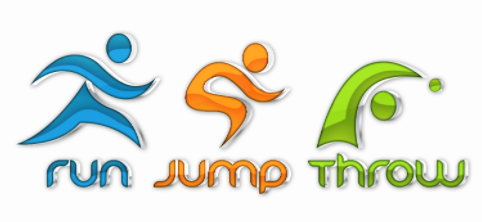
This year, Year 5 PE is on Monday and Thursday. You need to be prepared for both outdoor and indoor PE. We will be going out, even when the weather turns colder.
Things to remember for PE days :
- no jewellery, including watches
- long hair tied back
- PE kit to be house T-shirts or plain white T-shirts
- navy shorts/joggers
- appropriate footwear - bare feet/plimsolls for indoors and trainers for outdoors
Term 1 : Outdoor and Adventurous / Hockey
Term 2 : Yoga / Basketball
Term 3 : Gymnastics / Dodgeball
Term 4 : Football / Golf
Term 5 : Cricket / Fitness
Term 6 : Rounders / Athletics
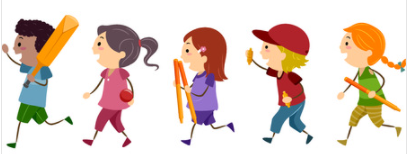
Homework
- You should aim to be reading a variety of texts independently and aloud at home for at least 10 minutes a day and reflecting on what you have read in your Reading Contact book.
- Regular practice of spelling rules and times tables / division facts (using Times Tables Rock Stars if you wish) is also expected.
If you need any help, be sure to ask in class. If possible, try to get into a routine with a specific time/day/place to complete tasks each week.
Useful Websites
Geography
- Oddizzi - Where the World Comes to Life
Geography learning resource - ask your teacher for the class login details
Other

